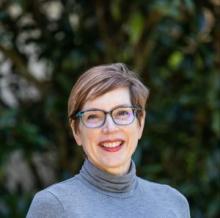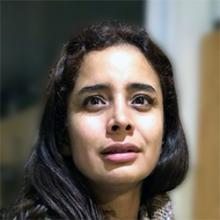Students from Universidad Veracruzana in Xalapa, Mexico, collaborated with students in the UF course by reading a shared list of nonfiction texts. UF students read as much as their Spanish reading level allowed. Many levels of proficiency could enroll in the UF course, as long as prerequisites were met. The professors facilitated live discussion on Zoom. Students at UF prepared questions for their counterparts in Mexico; those questions turned out to be one of the most popular interventions according to the end-of-semester poll of students in Mexico. Some UF student-prepared questions and student-prepared answers appeared by video on the Flip platform. Those Flip videos included individual reflection on one work discussed during the special tour of the art museum facilitated by director Eric Segal of the Latin American collection of photography, painting, and more. The remainder of the semester involved more traditional assignments of canonical poetry and short stories, some of which also appeared in the assigned readings shared with the students in Mexico. Those other weeks of more traditional coursework sandwiched the discussion with the UV students and thus allowed for adequate preparation and follow-up.
- Advance in the acqusition of oral and reading comprehension skills.
- Improve writing: precise, concise, and with an interesting idea to express.
- Relate literary content to personal experiences.
- Increase opportunities to acquire and study specialized vocabulary.
- Develop the ability to interpret literary texts, and to also appreciate their historical value.
- Cultivate the ability to converse about course topics in a cosmopolitan and non-offensive manner.
Individual work: 1 hour per week
Flip


